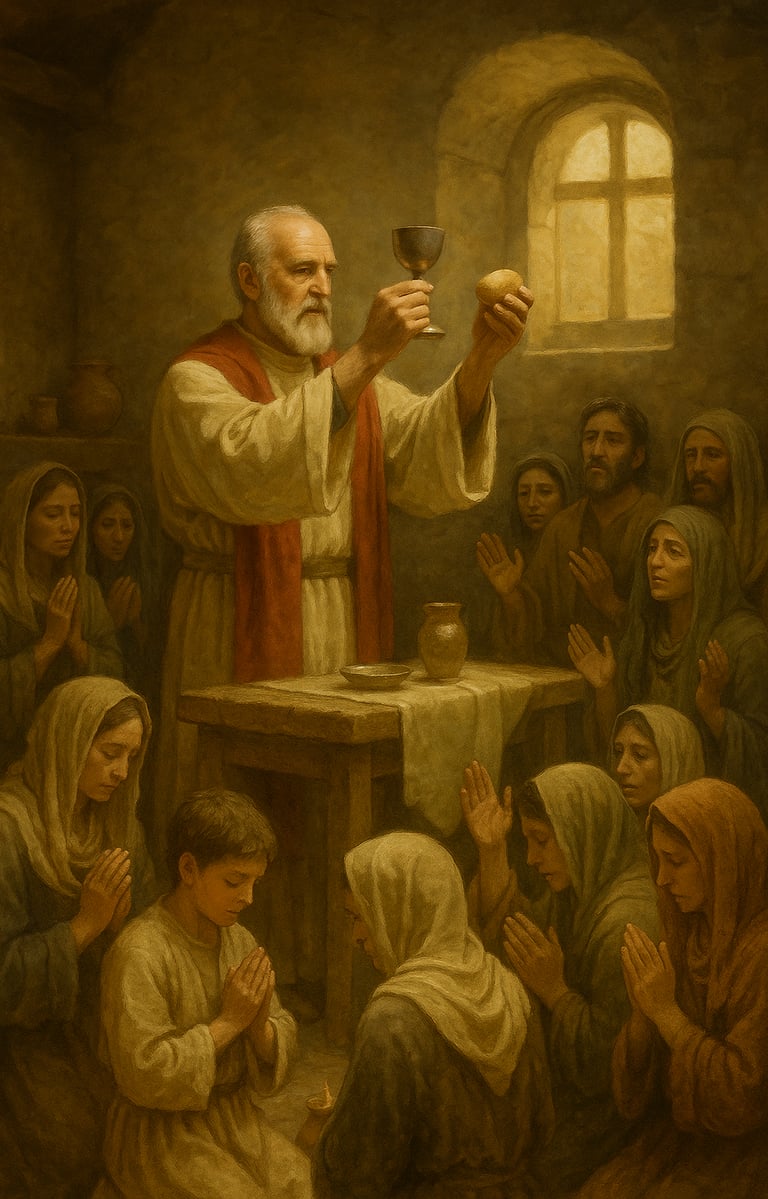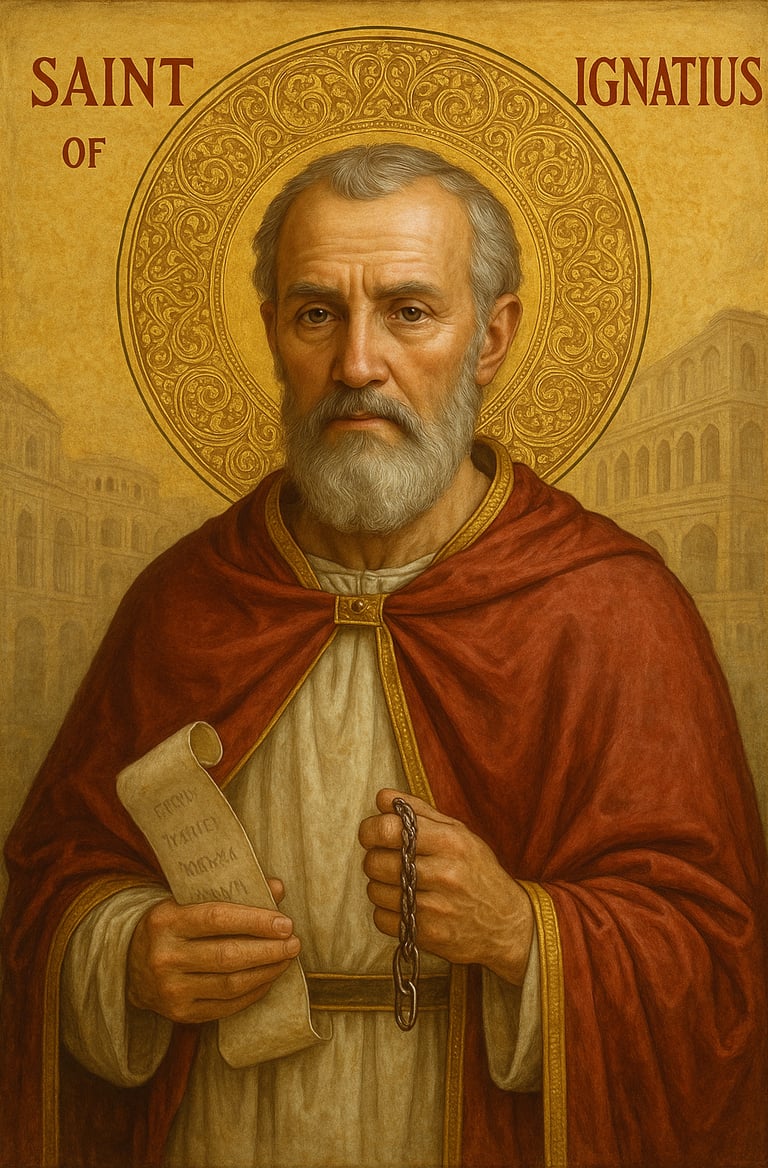Saint Ignatius of Antioch – The Bishop Who Walked Willingly to the Lions
Feast Day: October 17 | Patronage: The Church in the East, Writers, Martyrs
Halo & Light Studios
10/17/20253 min read


Click Link for a reel of Daily Dose of Saints and Faithful Art:
https://youtube.com/shorts/VJ4DwCh4oTY
In the great city of Antioch, the third-largest city of the Roman Empire after Rome and Alexandria, Saint Ignatius served as bishop during the first century—a time when the Church was still young and often persecuted. Antioch, located in modern-day Antakya, Turkey, stood at the crossroads of East and West. It was a bustling center of trade, culture, and belief, where Greek philosophy met Eastern spirituality and Roman order.
It was here, according to the Acts of the Apostles, that “the disciples were first called Christians” (Acts 11:26). The community at Antioch became one of the most important centers of the early Church, sending missionaries like Paul and Barnabas to proclaim the Gospel throughout the empire. From this fertile ground of faith rose a man of remarkable courage and holiness: Ignatius of Antioch, born around 35 AD, and trained in the faith by the Apostle John himself.
He likely succeeded Saint Evodius as bishop around 70 AD, guiding the Christians of Antioch through times of persecution and confusion. His leadership helped shape the growing Church into a unified body built upon apostolic tradition, centered around the Eucharist and the authority of the bishop.
Around 107 AD, during the reign of Emperor Trajan, Ignatius was arrested for refusing to offer sacrifice to the Roman gods. Condemned to death, he was sent in chains from Antioch to Rome. Along the journey, guarded by ten Roman soldiers, he wrote seven profound letters to the churches of Asia Minor and to his dear friend Saint Polycarp.
These letters—some of the earliest Christian writings outside the New Testament—offer priceless insight into the life of the primitive Church. Ignatius writes with the tenderness of a shepherd and the zeal of a martyr, urging unity under the bishop, fidelity to the Eucharist, and courage in the face of persecution.
In his Letter to the Romans, Ignatius expressed his burning desire to imitate Christ in His Passion:
“I am God’s wheat, and I am ground by the teeth of wild beasts that I may be found pure bread of Christ.”
To Ignatius, martyrdom was not defeat but transfiguration—a passage into perfect union with Christ. He longed to become a living offering, his suffering a participation in the sacrifice of the Cross.
His writings also confirm the early Church’s belief in the Real Presence of Christ in the Eucharist, which he called “the medicine of immortality.” He warned against heresies that denied Christ’s humanity, defending the mystery of the Incarnation with clarity and passion.
Ignatius lived during a period of uneasy peace known as the Pax Romana, when the empire stretched from Britain to Mesopotamia. Emperor Trajan sought to strengthen Rome by reviving traditional pagan worship. To him, Christians—who refused to honor the emperor as divine—were enemies of civic order.
Yet, as Ignatius was led to Rome to die in the Flavian Amphitheatre (the Colosseum), he embodied a new kind of victory: one not of conquest, but of faith. His courage inspired countless believers across the empire, and within two centuries, the blood of martyrs like him would water the seed of a Christian civilization.
Saint Ignatius of Antioch stands as one of the clearest voices of the early Church—a man who bridges the age of the Apostles with the emerging structure of Catholic unity. He calls today’s Christians to the same courage, obedience, and Eucharistic devotion that defined his life.
In a world often divided by pride and ideology, Ignatius reminds us that true faith is found in unity and love, grounded in the Church Christ founded. His journey to martyrdom was not one of despair but of triumph—a pilgrimage of love that saw death as the final step toward eternal life.
Saint Ignatius of Antioch,
pray that we may have the courage to stand firm in faith,
to defend the truth,
and to stand up for our Holy Mother Church,
even in the face of trial and persecution.


